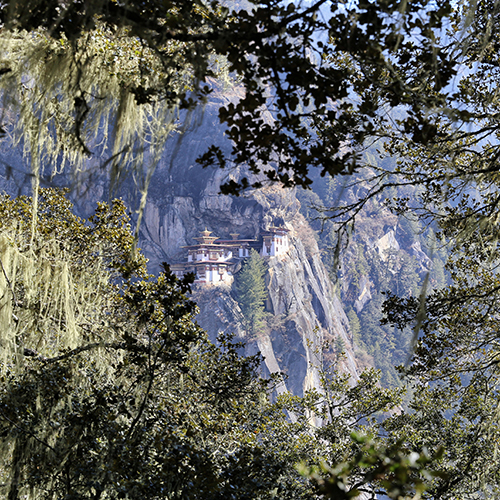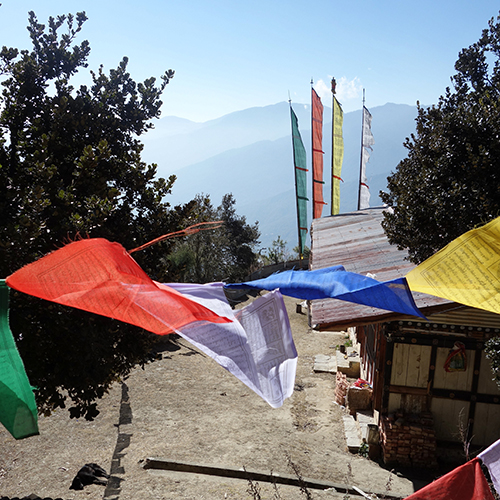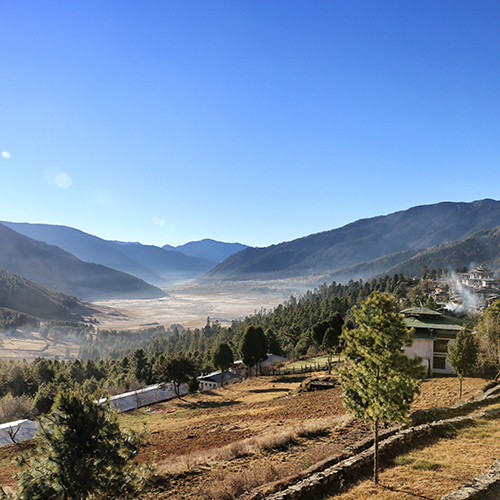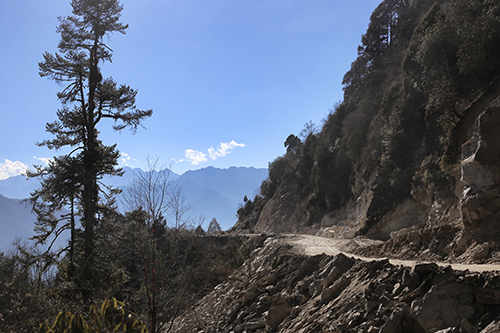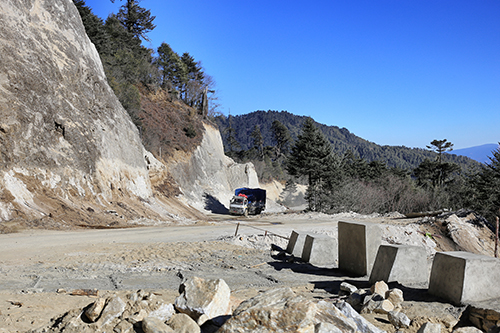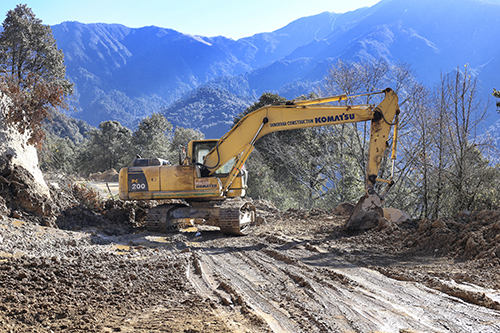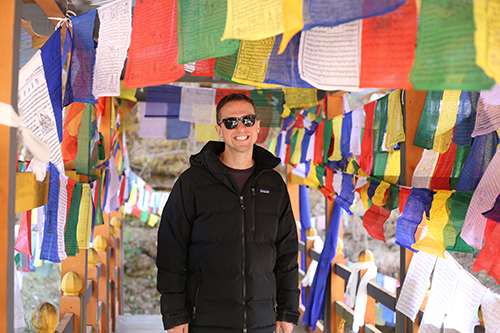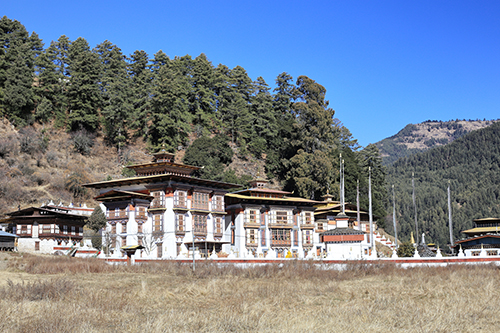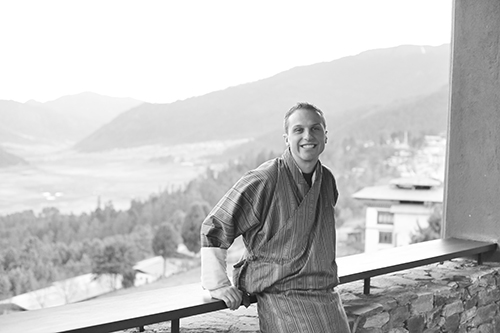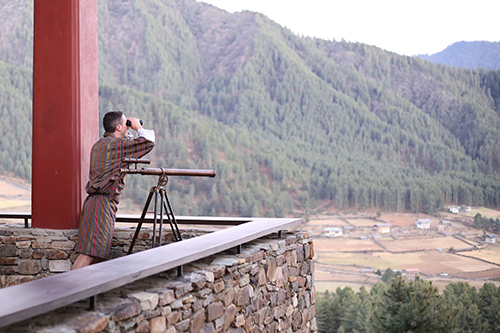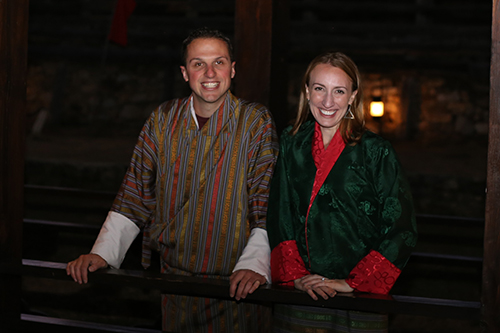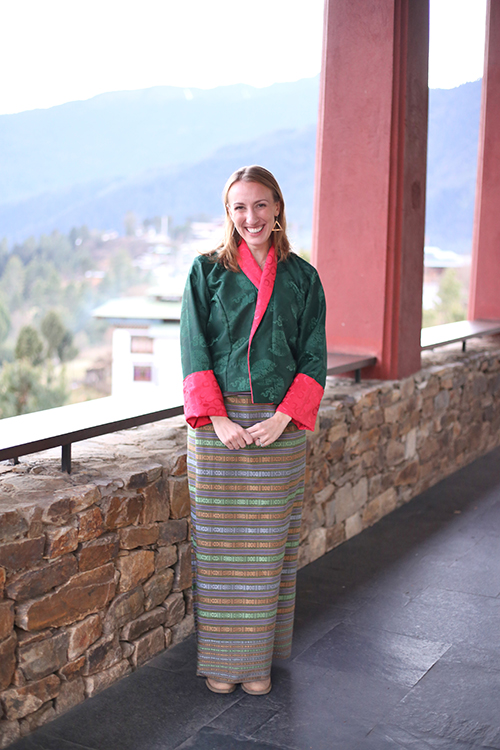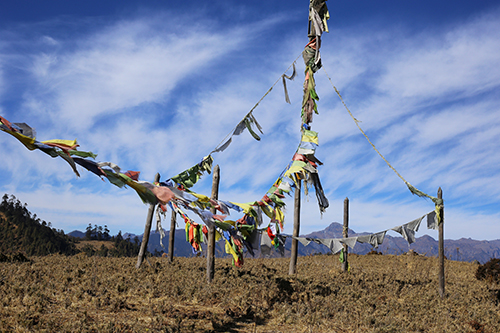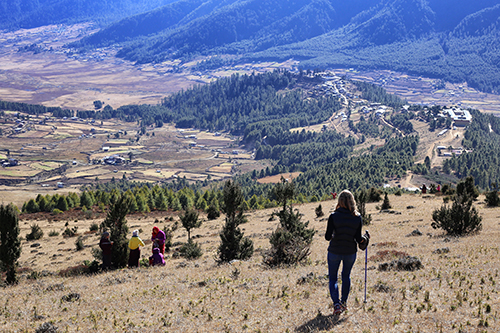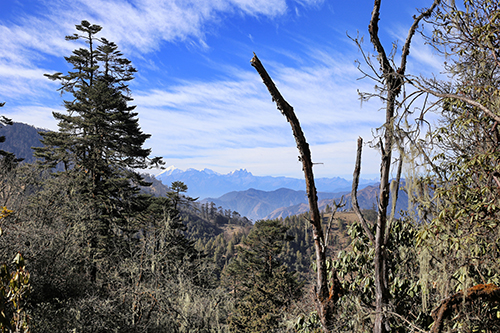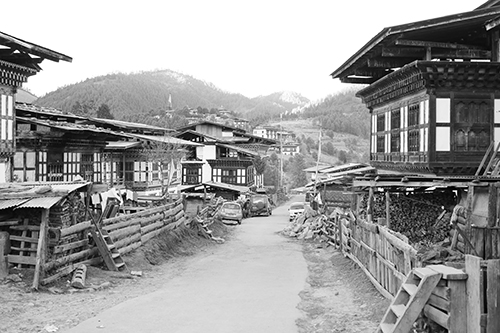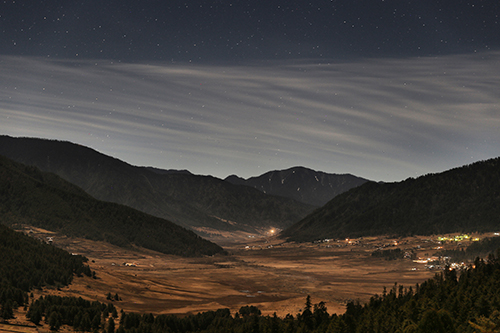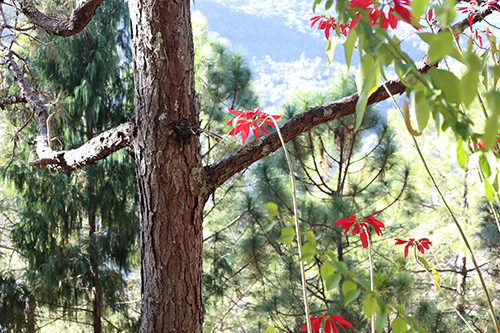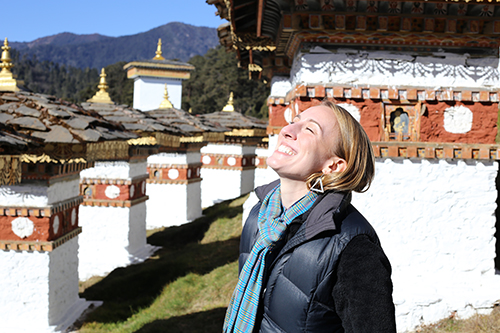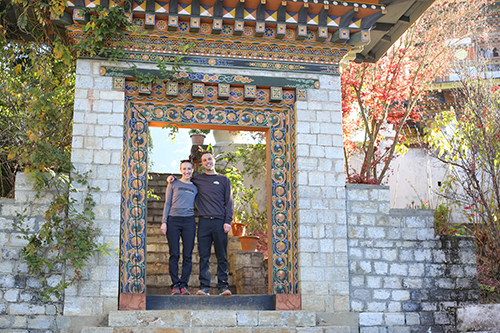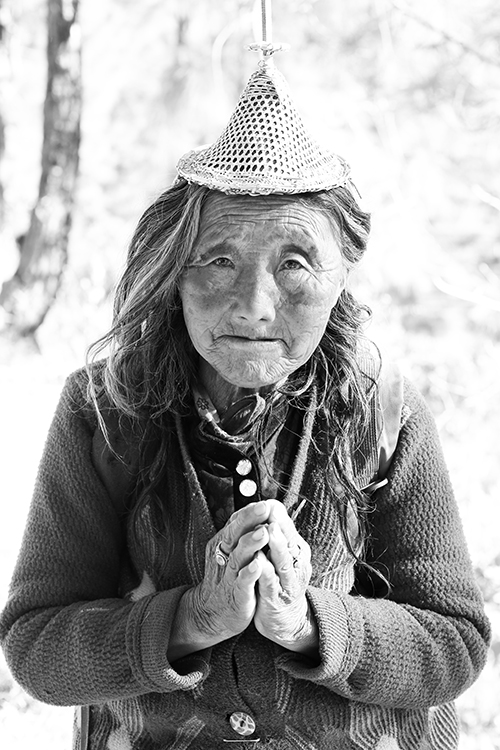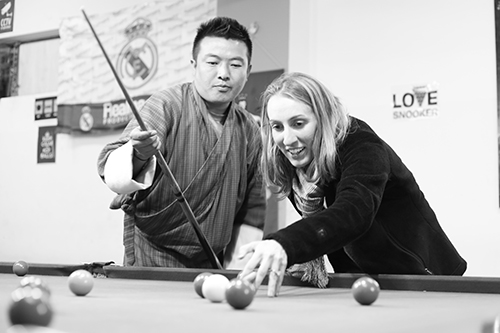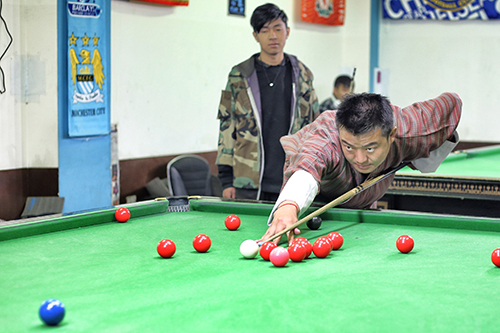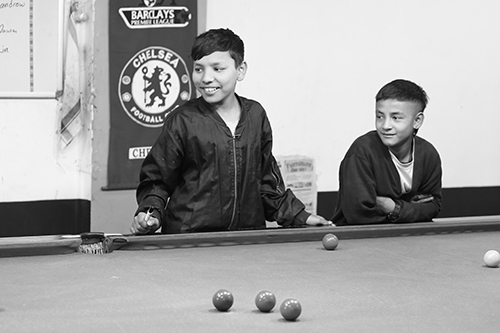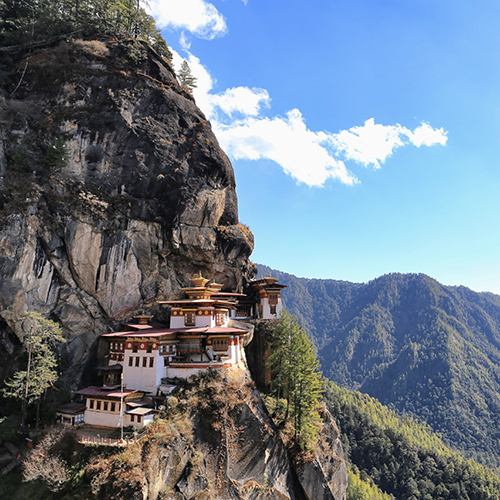
Silence except for heavy cold breaths. Lindsey and I sit meditating cross-legged in the upper sanctuary of Tiger’s Nest in front of the great Guru Rinpoche. I focus on focusing. Feeling my breath, hearing my breath, controlling my breath. Then my mind wanders, and I return back to breathing, back to focusing on focusing. No one disturbs us. We are the first up to Tiger’s Nest in the morning and we get to savor this moment. Here we are at one of Bhutan’s most sacred sites in a country where most if not all sites are sacred in some way. The air is cold enough to freeze parts of the 50 foot waterfall we pass along the trail. The sun is still hidden behind clouds and fog. Our shoes are outside the door. Our toes freezing. Focus on focusing. The land is quiet save the occasional wind through trees and prayer flags. And the temple in which we stand is secured in a mountain face close to 1000 meters above the valley floor. It’s our last day in Bhutan. It’s magical in almost every sense of the word.
We’ve been in Bhutan for over ten days, and every day it’s been clear blue skies as far as we can see. On this particular morning, we start the day unable to see ten feet in front of us. Google Bhutan and all you see is pictures of Tiger’s Nest. It is unique, beautiful, iconic, and the single activity that’s been met with the greatest expectations. Our guide quells our anxiety after breakfast, assuring us we’d just started the day at an early hour and that surely this will clear. We hike quickly, a pack of stray dogs trailing us, then leading us all the way to the mid-point, a cafe. We sip tea and ask again for assurance that it will clear. This time, Sonam isn’t so sure.
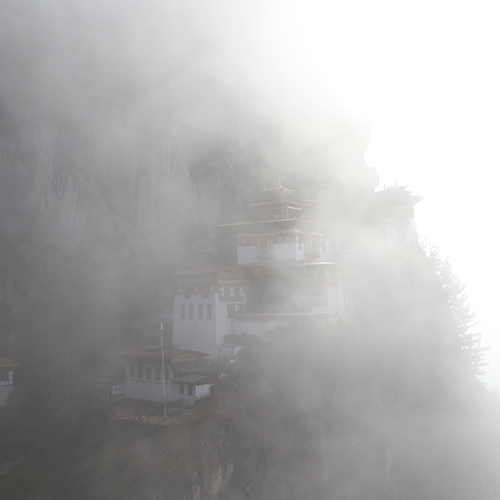
We know we’re in the land of contentment where hope is believed to be a cause of suffering, but for Tiger’s Nest, we’re willing to wait all day if it comes to it. As we continue on the hike up to Tiger’s Nest, still led by our pack of dogs, we see a small patch of blue sky. We see the fog starting to thin in the distance. And finally, we see the outline of Tiger’s Nest hidden behind the sheet of white. Our disappointment turns to optimism and we hike on. Being able to see the Tiger’s Nest revealed behind the fog as the morning continues is a memory we will never forget. But of course, the better pictures come with blue skies, so after a Coca-Cola at the cafe, we decide to scurry back up the mountain to capture the magical monastery in the sun, one last time. Our journey is complete.
